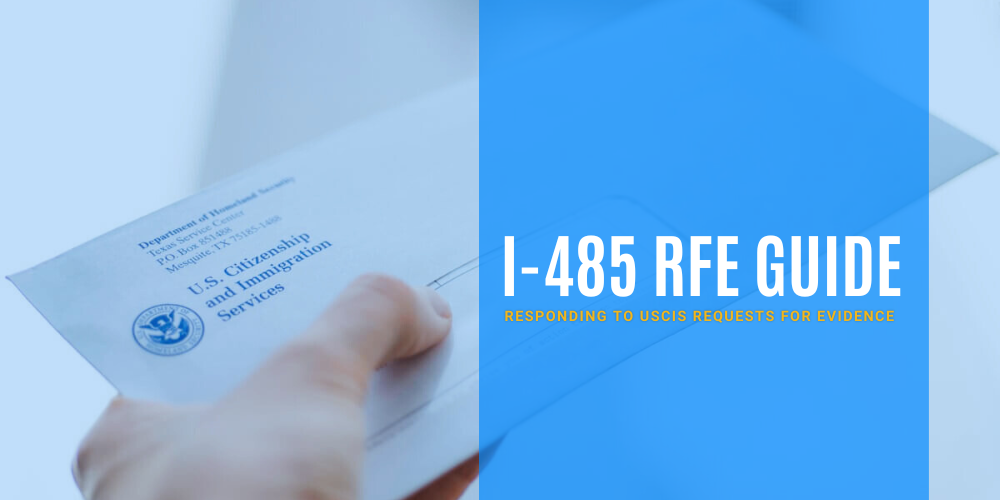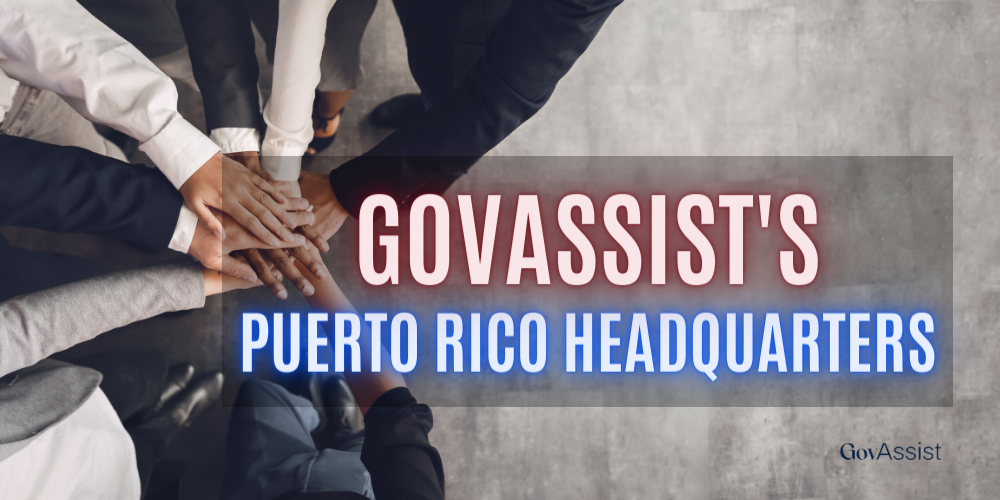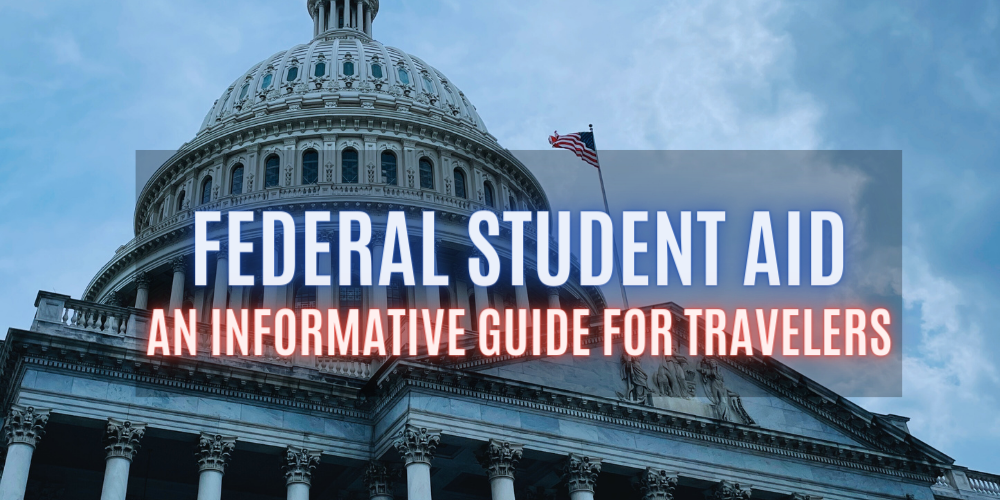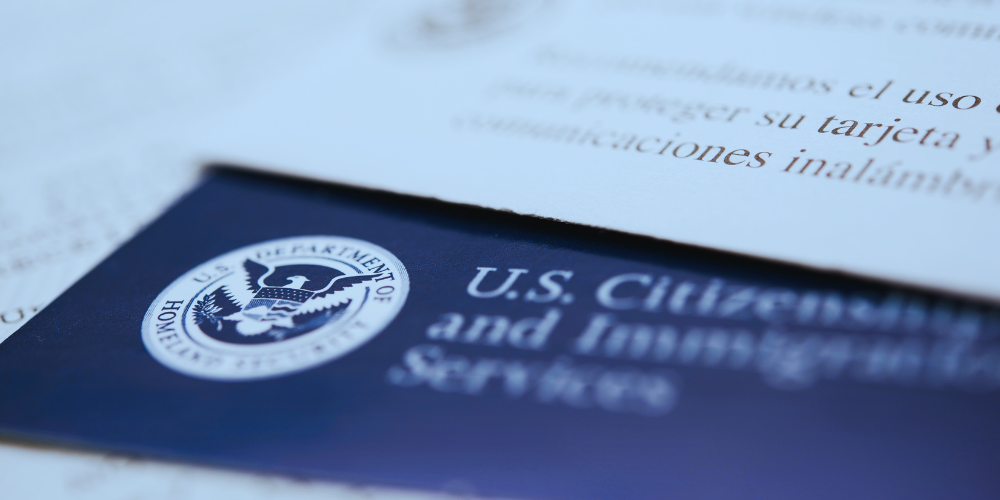--------- I-485 RFE Guide: Understanding and Responding to USCIS Requests for Evidence
Apr 3, 2024

Applying for a U.S. Green Card can be a journey filled with anticipation and, sometimes, unexpected detours. One such detour can be a Request for Evidence (RFE) from USCIS during the I-485 application process. This blog post aims to guide you through common reasons for an I-485 RFE, helping you navigate these hurdles effectively.
Understanding the RFE Process
An RFE, or Request for Evidence, is a way for USCIS to request additional documentation or clarification on certain aspects of your I-485 application. It's not a denial, but rather a request for more information to make a well-informed decision. An RFE will specify what evidence is needed and will give a deadline for the response. It's crucial to respond by this deadline, as failing to do so can result in the denial of your application. The response should be thorough, addressing all of USCIS's concerns clearly and completely.
Proof of Eligibility
One common reason for an RFE in the I-485 process is the need for further proof of eligibility. This can include evidence of a legal entry into the United States, proof of a qualifying relationship (in family-based applications), or, in the case of employment-based applications, proof of a bona fide job offer and qualifications for the position. Applicants must provide clear, credible, and convincing evidence to demonstrate their eligibility for the Green Card they are applying for.
Financial Support Evidence
Another key area that can trigger an RFE is the financial support evidence. Applicants must show that they will not become public charges and are financially supported in the United States. This typically involves submitting Form I-864, Affidavit of Support, completed by a sponsor. USCIS may issue an RFE if this form is incomplete, if the sponsor's income is insufficient, or if there are discrepancies in the financial information provided.
Medical Examination Forms
USCIS requires a medical examination to ensure public health safety. Form I-693, Report of Medical Examination and Vaccination Record, must be filled out by a USCIS-approved civil surgeon. Common issues leading to an RFE in this area include incomplete forms, missing vaccinations, or the submission of outdated medical examinations. It's important to ensure that the medical examination is current (typically within one year of filing the application) and thoroughly completed.
Background Check Issues
Background checks are a standard part of the I-485 application process. Discrepancies or issues in an applicant’s background, such as a past criminal record or inconsistencies in the information provided, can lead to an RFE. Applicants might need to provide additional documents, such as court records or detailed explanations, to clarify any issues raised during the background check.
In each of these areas, the key to successfully responding to an RFE is to provide comprehensive and clear documentation that addresses USCIS's concerns directly. Ensuring accuracy and completeness in your initial application can help minimize the chances of receiving an RFE.
Previous Immigration Violations
If an applicant has a history of immigration violations, this can be a significant reason for receiving an RFE. Violations might include overstaying a visa, working without authorization, or previously being deported or removed from the United States. USCIS may request detailed information about these incidents, including dates, circumstances, and any legal documents related to the case. The key here is transparency: applicants should be honest and thorough in explaining their past violations. Providing complete and accurate information, along with any remedial actions taken, can help USCIS understand the context of these violations.
Employment-Based Application Evidence
For those applying for a Green Card through employment, USCIS may issue an RFE to gather more information about the employment arrangement. This could include requests for proof of the employer's ability to pay the proffered wage, the legitimacy of the job offer, or the applicant’s qualifications for the proposed position. Essential documents might include employment contracts, pay stubs, financial statements from the employer, and resumes or certificates proving the applicant’s qualifications. The aim is to ensure that the employment is genuine and meets all the requirements set by USCIS.
Genuineness of Marriage in Family-Based Applications
In cases where the Green Card application is based on marriage, USCIS often scrutinizes the relationship to ensure it is genuine and not solely for immigration benefits. An RFE in this situation might request additional evidence to demonstrate the bona fide nature of the marriage. This evidence can include joint bank statements, lease agreements showing cohabitation, photographs of the couple together, testimonies from friends and family, or birth certificates of children born to the couple. The more proof you can provide of a shared life, the stronger your response to the RFE will be.
How to Respond to an RFE
Responding effectively to an RFE is crucial. Here are some key steps:
- Read Carefully: Understand exactly what evidence USCIS is requesting. Ensure that you know what each requested document is and why it's necessary.
- Gather Documents: Collect all the necessary documents. Ensure that they are current and relevant, and support your case.
- Organize Your Response: Present your response in an organized manner. Include a cover letter that outlines the contents of your response and references the RFE.
- Meet the Deadline: Submit your response by the deadline specified in the RFE. Late responses may result in the denial of your application.
- Consider Professional Help: If you’re unsure about how to respond or if the RFE is complex, consider seeking advice from an immigration attorney.
How to Respond to an RFE
When responding to an RFE, ensure that your response is complete, clear, and submitted within the given deadline. Missing the deadline or providing an incomplete response can result in the denial of your application.
Navigating an RFE can be challenging, but with the right approach, it’s a hurdle you can clear. For those needing extra assistance, GovAssist offers personalized help with your visa application process. Their expertise can be invaluable in understanding RFEs, organizing your response, and ensuring that all the required evidence is presented effectively.
Remember, being proactive, organized, and thorough is key to successfully navigating the USCIS application process. Stay informed, seek assistance when needed, and approach each step of the journey with confidence.
Recent Articles

Top 5 Schengen Travel Insurance Providers for Your Next European Journey
Traveling to Europe is an exciting adventure, but it comes with its responsibilities, including secu

OPT Entrepreneurs: How to Start Your Business Journey in the USA
Starting a business is an exciting venture, and for international students in the USA, the Optional

Celebrate Eid al-Adha 2024: Traditions, Tips, and Travel Information
Eid al-Adha, also known as the Festival of Sacrifice, is one of the most significant holidays in the

Welcome to GovAssist's Puerto Rico Headquarters
Welcome to GovAssist's Puerto Rico headquarters! We are thrilled to bring our extensive immigr

Federal Student Aid: An Informative Guide for Travelers
Navigating the world of higher education can be overwhelming, especially when it comes to financing

Social-Cultural Visa: An Informative Guide for Travelers
Traveling to immerse yourself in the culture, traditions, and social customs of a foreign country ca
Read More

Top 5 Schengen Travel Insurance Providers for Your Next European Journey

OPT Entrepreneurs: How to Start Your Business Journey in the USA

Celebrate Eid al-Adha 2024: Traditions, Tips, and Travel Information

Welcome to GovAssist's Puerto Rico Headquarters

Federal Student Aid: An Informative Guide for Travelers

Social-Cultural Visa: An Informative Guide for Travelers

Welcome to the GovAssist blog. We know that navigating the maze of visa applications and online forms can be as tricky as choosing the perfect travel playlist (which is all we want you worrying about anyway).
Throughout our years of experience, though, we’ve uncovered a mountain of knowledge which, via this blog, we’re sharing with you! Whether you're diving into the world of travel visas, wondering about the ESTA online hustle, or just trying to figure out the DS160 form, think of us as your online concierge, here to make the process easy and most of all, clear.
At this point in our global context, who has time for endless paperwork and confusing legal jargon? No one. That's why we're all about spilling the tea on online visa hacks, easier-to-work-with DS160 forms, and giving you tips on everything from tourist visas to immigration, to that last-minute ESTA online adventure.
So, just plug in a word you’re curious about on the search bar, and boom. We've got the tips, tricks, and insider info to help you (and anyone else you may be traveling with) get to your travel destination with the confidence of a seasoned traveler.
Now go explore!
